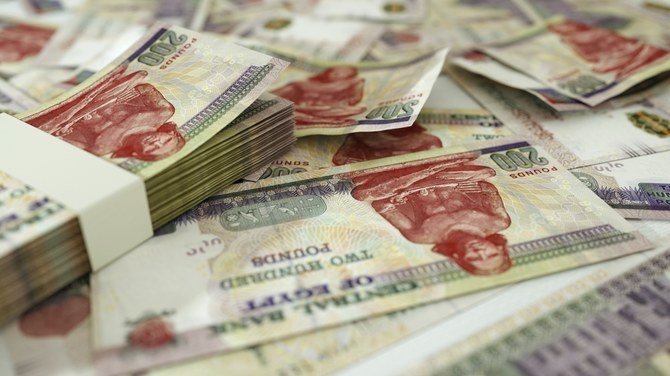Egypt’s economic reforms yielding positive results: finance minister

RIYADH: Egypt’s new economic path, focused on structural reforms empowering the private sector to lead growth and attracting investment, has begun to yield positive results, said the country’s finance minister.
Mohamed Maait highlighted that despite the harsh impacts of global and regional economic crises, Egypt has seen financial indicators surpass budget estimates and targets over the past nine months of the fiscal year 2023-2024, Egyptian daily Al-Ahram reported.
The minister noted that this success reflects the international recognition of the north African country’s economy for achieving better-than-expected performance metrics.
Last month, Egypt secured an additional $5 billion in loans from the International Monetary Fund following the central bank’s decision to raise interest rates and allow the pound to depreciate by nearly 40 percent in value.
Earlier this month, the IMF announced that it would link payments to the country under an $8 billion financial program to Cairo’s decision to allow market conditions to determine the price of its currency and to make foreign exchange available to businesses and private individuals.
Further emphasizing the economic strategies, Maait pointed out the significant improvements in non-tax revenues, which saw an increase of 122.9 percent, and tax revenues which surpassed 1 trillion Egyptian pounds ($20.6 billion), marking a growth of 41.2 percent annually.
He proudly noted these gains were achieved without imposing new burdens on citizens or investors, thanks to expanded mechanization intended to broaden the tax base and integrate the informal economy into the formal sector.
Maait pointed out that the country’s continues effort to boost its economy is evident in the Ministry of Finance’s ongoing dialogues with over 2,000 investment institutions a year.
The ministry’s Investor Relations Unit plays a crucial role in these engagements, maintaining open dialogue throughout the year and issuing monthly performance reports.
These reports provide foreign investors with precise, up-to-date economic data, including details about debt levels, deficits, and primary surpluses, the state-owned newspaper reported.
They also offer a simplified guide on the various incentives, including tax advantages available to investors, aiming to alleviate any concerns and accurately address potential economic risks.
Meanwhile, data released earlier this month by Egypt's Central Agency for Public Mobilization and Statistics showed a slowdown in the country’s urban consumer price inflation rate to 33.1 percent in March from 36 percent in February.
Additionally, month-on-month prices rose by 10 percent in the third month of 2024, down from an 11.4 percent increase in the previous period.
This development follows the central bank’s announcement in early March of a 600 basis points hike in interest rates at an unscheduled meeting, along with a shift to an inflation-targeting regime, allowing the exchange rate to be determined by market forces.
Furthermore, Egypt’s Ministry of Petroleum and Mineral Resources has announced that construction of a solar power plant at the Assiut Oil Refining Co. has begun, in an effort to lower carbon emissions.
The project, spearheaded by the consortium of ENPPI and Petrojet, involves the creation of a 10-megawatt solar facility, with an investment of 550 million Egyptian pounds.
Scheduled for completion within 11 months, this initiative is a part of a broader strategy for energy transition and emissions reduction across the country’s petroleum sector.
This solar power project is complemented by another initiative at the Egyptian General Petroleum Corp., aiming to produce 6.5 MW of electricity from solar energy, with a similar investment of 500 million pounds.
Both projects are financed through a EU grant under the Energy Sector Policy Support program, aligning with the ministry’s goal to implement actionable projects that advance the sector’s sustainability objectives.

